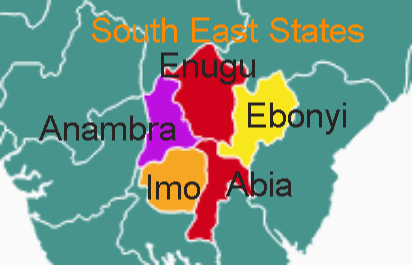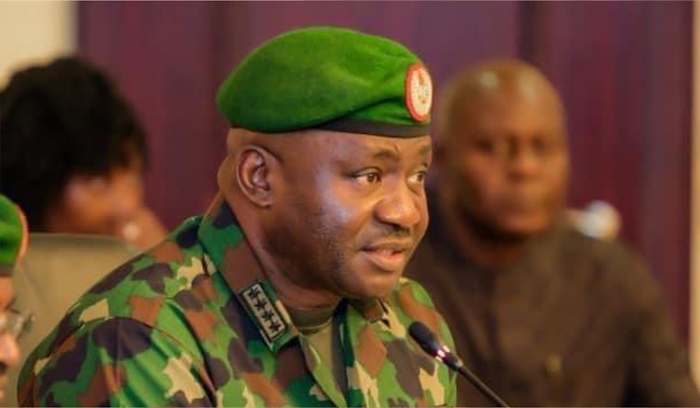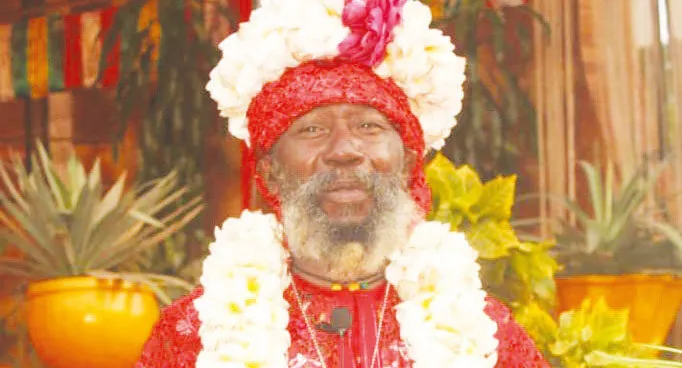News
S’East ‘ll Be Peaceful If Troops Go After Herdsmen, Igbo Women Tell CDS

The Indigenous Igbo Women Assembly, says, if the Chief of Defense Staff, General Christopher Musa is genuinely committed to the restoration of peace in the zone, he should ‘move his men to the bush to combat the killer herdsmen killing farmers and raping women and girls.’
The women made this known following recent advice by the CDS to the people of the South East against promoting the activities of the Indigenous People of Biafra and its armed wing, the Eastern Security Network, particularly through social media.
The CDS, represented by Group Captain Ibrahim Bukar, during a recent engagement in Anambra State, had said that the spread of unverified information “not only endangers the region but also poses a threat to national unity and peace”, adding that “IPOB’s actions are detrimental not just to the South East, but to Nigeria as a whole,” and should not be supported in any form.
However, in a statement, IWA’s National President, Lolo Nneka Chimezie, challenged the CDS that IPOB is not a terrorist group, but a peaceful movement protesting the marginalisation and continued exclusion of the South East from the scheme of things in Nigeria, urging him to advise the federal government to listen to the agitations of IPOB and engage the group in dialogue with a view to addressing its genuine concerns, instead of resorting to propaganda to blackmail its members.
READ ALSO: Court Sentences Two To Death For Kidnapping, Armed Robbery
According to the statement made available to newsmen in Umuahia on Sunday, the women said, “We want to remind Gen. Musa that IPOB members are not terrorists but our children who are protesting the ill-treatment and marginalisation of the South East from the scheme of things in Nigeria. Since the civil war up till now, the South East has been grossly marginalized by the Nigerian State.
“From 1966 after the assassination of Gen. Aguiyironsi till date, no Igbo man has been President of Nigeria. Ndigbo have grossly been marginalized in political appointments by successive administrations in the country. They have been denied their rightful promotion especially those in the security agencies. And that’s part of the reasons Igbo youths are losing interest in military recruitment. They have refused to join the military and even the police because they hardly get promoted like their colleagues from other tribes”.
Expressing their concern further, the women asked, “Why is the federal government killing IPOB members but granting amnesty to bandits and mass murderers who have not stopped killing innocent citizens, including security agents? Why is the government killing our youths during peaceful protests, but allowing armed herdsmen on a killing spree to keep roaming our communities with guns?
“What is the rationale behind the constant release of captured terrorists who claim to have repented, while peaceful agitators like IPOB members are held in perpetual detention? Fulani herdsmen do not need AK-47s in the South East because there has never been any incident of cattle rustling in the region. For them to carry AK-47s about, shooting people shows they have an evil agenda because they don’t shoot and run, but shoot and stay.
READ ALSO: Delta Police Kill Four Suspected Kidnappers, Recover Weapons
“What IPOB is demanding is legitimate. It’s their right. Those causing mayhem in the zone are criminal elements and killer herdsmen. If the CDS truly loves the restoration of peace in the South East, let him advise the federal government to listen to IPOB and engage the youths in sincere dialogue and address their grievances.
“Gen. Musa should understand that the problem of the South East is not IPOB: our problem is the rampaging Fulani herdsmen busy displacing communities across the zone. If Gen. Musa wants to maintain peace and order in the South East, he should move his men to the bush to combat the killer herdsmen killing our farmers and raping our women and girls”.
IWA traced the genesis of the tension in the South East to the deployment of the military to the zone during a special military operation codenamed Python Dance, stating, “May we remind Gen. Musa that prior to the drafting and deployment of the military to the South East by President Muhammadu Buhari, we had absolute peace in Igbo land. South East was the most peaceful region in Nigeria before then.
“When the federal government abducted IPOB leader, Mazi Nnamdi Kanu, from Kenya, the problem became worse. IPOB members in protest declared a Monday sit-at-home protest but relaxed it after appeals from the elders. During President Donald Trump’s inauguration, a lot of them were shot and killed in Port Harcourt for celebrating Trump. Many were also killed in Onitsha and Aba for merely praying and carrying out peaceful protests.
READ ALSO: Catholics Protest Against Kidnapping In Edo
The Igbo women also decried the continued migration of youths from the South East who are fleeing intimidation and humiliation by security operatives, especially at roadblocks and condemned reprisal attacks on innocent communities any time security agents come under attacks by criminals in South East, stating, “While the security operatives deployed to the South East were busy crushing our youths, criminals were busy spreading insecurity in the South East.
“There have been several attacks against security agencies in the North but how many Northern villages were sacked in the aftermath unlike here in the South East? Awo Idemiri and Eke Ututu market in Imo State were all attacked. These made our youths to migrate from the South East in their droves. What the security agents are doing is to systematically chase our youths away so that we will not have those to defend us when the rumoured jihad eventually starts.”
IWA further raised alarm over the influx of aliens in the South East and urged security agents to investigate their mission, stating, “There is an invasion of the South East by strange faces doing all sorts of menial jobs and surveying our land. These strange faces are not IPOB members. In some villages, some of these jobless wanderers outnumber the owners of the land. What’s the Nigerian Government doing that has not stopped these marauders who are moving about with guns and killing innocent citizens at will?”
Igbo women, therefore, demanded the immediate dismantling of security roadblocks across the South East, which, they said, have become extortion points, causing traffic delays.
PUNCH
News
Senate Confirms Ex-CDS Musa As Defence Minister After Five-hour Screening

The Senate on Wednesday confirmed the appointment of a former Chief of Defence Staff, Gen. Christopher Musa (retd.), as Nigeria’s new Minister of Defence following a rigorous five-hour screening by lawmakers.
During the confirmation hearing, Musa faced tough questions on recent security lapses, including the withdrawal of troops from Government Comprehensive Girls Secondary School, Maga, in Kebbi State, shortly before the abduction of schoolgirls on November 17.
The incident sparked national outrage.
Musa assured the Senate that he would immediately set up a full-scale investigation into the troop withdrawal once he assumes office.
He also vowed to probe the recent killing of a brigade commander in Borno State, Brigadier General Musa Uba, and other attacks targeting military officers.
READ ALSO:Senate Confirms New FCC Chairman, Approves 37 Commissioners
He said, “It is very unfortunate and really painful. I want to assure Nigerians that we will not stand by and have terrorists have the capacity to do such.
“We are going to go after them fully, working together with all the security agencies and Ministries, Departments and Agencies (of government). We are going to investigate fully.
“The Armed Forces have a way, and then from the defence, we are going to make sure that we continue with the oversight over their activities.”
The nominee highlighted gaps within the armed forces and called for enhanced funding, strengthened community engagement, and coordinated inter-agency operations.
READ ALSO:Senate Backs Death Penalty For Kidnappers, Informants, Others
He also emphasised the need to protect schools through the Safe Schools Initiative and a zero-tolerance approach to terrorism and banditry.
The screening session saw moments of tension in the chamber.
Senator Sani Musa (APC, Niger East) suggested Musa be allowed to “take a bow and go,” prompting protests from lawmakers, including Senator Garba Maidoki (PDP, Kebbi South).
Senate President, Godswill Akpabio, intervened, urging a thorough screening and noting that Nigerians and the international community were closely watching the process.
READ ALSO:Senate Recommends Death Penalty For Kidnappers
Musa, nominated on Tuesday by President Bola Tinubu following the resignation of Defence Minister, Badaru Mohammed, on health grounds, pledged to prioritise the protection of lives and national territory.
“I pledge to do my best to ensure that Nigeria is secure and safe.
“We need the support of everyone, every Nigerian, working together as a team, because it’s going to be a team effort.
“The enemies we are dealing with are evil forces that don’t mean well for this country and have no respect for human lives… If we don’t work together, we will allow them to perpetrate the evil acts they have been doing,” he said.
His confirmation comes amid heightened concerns over nationwide kidnappings, insurgency and mass abductions.
News
NUC Gets €3m Loan To Start ICT Projects In Varsities

This initiative, known as the Blueprint-ICT-Dev Project, aims to upgrade digital infrastructure, strengthen ICT capabilities, and promote digital literacy in these institutions.
The National Universities Commission says it has received €3m as the first tranche of the $40 million loan secured from the French Development Agency to support Information, Communication and Technology projects in 10 selected universities across the country.
Executive Secretary of the commission, Abdullahi Ribadu, announced this during the inaugural meeting of the 13th NUC Board on Wednesday at the commission’s headquarters in Abuja.
Ribadu noted that since he assumed office about a year ago, the commission has pushed forward initiatives centred on research, entrepreneurship, digital transformation and skills development across Nigerian universities.
“We have secured $40 million loan from the French Development Agency for the ICT Blueprint Project in 10 selected universities. We have strengthened – only yesterday, the director confirmed to me that the first tranche of €3m has been deposited in our CBN account to kick-start the process.
“We have strengthened internal financial management, expanded access to university education through the licensing of new private universities, and approved new programmes and units.
READ ALSO:Panic In Delta Female School Over False Herdsmen Attack
“We have also supported the take-off of publicly funded universities, expanded open and distance learning centres, and continued system-wide quality assurance exercises. Currently, the 2025 Accreditation Exercise is ongoing.
“These priorities continue to form the foundation of the Commission’s direction, and I am seeking your support in advancing them,” he said.
Ribadu assured the board of the commission’s full cooperation, saying the management stands ready to draw from the members’ expertise.
“We will rely on your wisdom to guide us as we carry out our duties. I am confident that your collective experience will strengthen the commission’s capacity to guide the Nigerian university system at a time when higher education continues to evolve.
“We also look forward to using your networks to help advance projects and partnerships that will benefit the Commission and the entire university system,” he added.
READ ALSO:NUC Begins Nationwide Recruitment, Opens Application Portal
On his part, Chairman of the 13th NUC Board, Emeritus Professor Oluremi Aina, thanked President Bola Tinubu for his sustained support for the university sector.
He said the board is assuming its mandate at a time of transition for higher education, with global standards rising and expectations increasing.
Aina outlined five central pillars that will guide the Board’s work, covering performance evaluation, improved university rankings, digital literacy, research and institutional reforms.
He said, “As we settle into this assignment, but permit me to present what I call five pillars that I believe will help guide our stewardship. One, evaluation of NUC performance.
“We must examine in detail the Act that buffered and laid the foundation for the NUC. We also need to be conversant with the various amendments to the act, its vision and mission, guiding principles and ethics.
READ ALSO:ABU Makes Clarifications On Alleged Production Of Nuclear Weapons
“Then we must study the commission’s operational challenges and landmark achievements. Going forward, we should compare ourselves against global standards, not sentiments, not history, and where we fall short, how we fall short, and why we must adjust boldly. Two, aligning with the renewed hope agenda of the present administration, the president has made education a pillar of national rebirth with the establishment of the fund and other initiatives.
“The signal sent to the world is that Nigeria is ready to reset and rebuild. Through our assignment, we must lead other key stakeholders in the higher education sector. In pragmatically resolving the naughty and nagging agitation of the academic staff union and other university unions.
“Advancements must also be made to enhance digital literacy and especially the use of artificial intelligence, AI, as tools to strategically reposition the universities nationally and internationally. Overall, it will also be a priority for the 13th board to work with the management for radical improvements in both the global and webometric ranking of our universities.”
He added, “Three, identifying and dismantling obstacles to university quality. Governance deficiencies, fund constraints, research stagnation, et cetera, must no longer be accepted as normal. Our duty is to reform and make progress, not to manage decline.
READ ALSO:Nine Countries With Nuclear Weapons In The World
“Four, reviewing existing funding and exploring new channels for sustainable funding. Nigerian universities cannot thrive on ingenuity alone. The board must intensify the research for alternative funding sources. Strengthen utilisation and explore emerging and local opportunities.
“And five, investing in the welfare and capacity of NUC staff and regulatory infrastructure. The system cannot overperform its operators. Credible accreditation and monitoring require strengthened conditions of service and protected regulatory independence.”
Aina added that the board would fully leverage technology in its operations.
“We will seek to leverage technology to ease our burden through the adoption of digital platforms for the advancement of our collective objectives. And I have a charge for the board.
READ ALSO:US Says Strikes ‘Devastated’ Iran’s Nuclear Program
“This board, in whom I am well-pleased, carries with it the weight of expectations and aspirations of the Nigerian people,” he said.
Earlier this year, the French Development Agency provided a €38 million credit facility to the National Universities Commission to support the digital transformation of 10 federal universities in Nigeria.
This initiative, known as the Blueprint-ICT-Dev Project, aims to upgrade digital infrastructure, strengthen ICT capabilities, and promote digital literacy in these institutions.
News
Satguru Maharaj Pledges To Facilitates Kanu Release If…

The founder of One Love Family, Satguru Maharaj Ji, has vowed to get the incarcerated leader of the proscribed Igbo group, Indigenous People of Biafra, Nnamdi Kanu, released if the Biafra radio and sit-at-home order are stopped.
Maharaj Ji stated this while speaking in an interview granted to his temple’s in-house radio on Wednesday.
According to him, the IPOB leader was culpable of the terrorism charges levelled against him, and anyone guilty is liable to a death sentence.
He said, “We are, however, grateful that the matter has been put on hold in the sense that, by the accusations, it is always going to be death, looking at the level of crimes attached to him, with the way and manner the constitution is written. Anybody who is accused of doing such a thing (terrorism) is sentenced to death. It is only out of grace that Kanu was able to escape.
READ ALSO:Court Threatens To Foreclose Kanu If He Fails To Open Defence
“So now it has to be by political settlement before he (Kanu) can be released, and it will be addressed in so many ways. For anyone advocating for his pardon, they have to take positive steps. In other words, they must not do so with empty hands; they should stop the Biafra radio wherever it is. Secondly, the sit-at-home order should be stopped, and the judgment should be accepted while the Igbo elders go behind the scenes to analyse and explain to the President.
“Today, the Igbos have been brought to the central realms of politics by Tinubu. And the Northern caliphate is not happy about it. They are not excited about the commission they were given…They should stop the propaganda that the East is about to be Islamised. When those are done, I know how to watch it out, Kanu will come out. I will help facilitate his release.“
The cleric joined the likes of Abia State governor, Alex Otti, activist Omoyele Sowore, and other South-East leaders to intensify efforts to secure the release of detained Kanu through a political arrangement, assuring residents of the region that “all hope is not lost.”
On Tuesday, Otti met Tinubu at the State House, Abuja, after visiting Kanu in the Sokoto prison facility, where the IPOB leader is serving his sentence.
READ ALSO:Nnamdi Kanu Files Fresh Motion, Asks Court To Strike Out All Charges
Otti’s meeting with the President is believed to be part of ongoing engagements aimed at securing the release of the detained Kanu.
Recall that Kanu bagged a life sentence instead of the death penalty after the presiding judge, Justice James Omotosho, handed down the sentence on counts one, two, four, five, and six.
The judge also handed Kanu a 20-year jail term on count three, with no option of fine, and a five-year jail term on count seven, with no option of fine.
Justice Omotosho delivered the judgment after convicting Kanu on all seven counts of terrorism offences.

 News2 days ago
News2 days agoBREAKING: Ex-CDS Musa meets Tinubu At Aso Villa

 News5 days ago
News5 days ago(VIDEO) Obasanjo To Tinubu: Why Are We Negotiating With Bandits?

 News4 days ago
News4 days agoInsecurity: What Sheikh Gumi Told Me After Visiting Bandits Hideouts — Obasanjo

 Politics4 days ago
Politics4 days agoTinubu Sends Ex-INEC Chair, Former Oyo First Lady, 30 Additional Ambassadorial Nominees To Senate

 News5 days ago
News5 days agoVIDEO: Jonathan Breaks Silence On Guinea-Bissau’s Military Takeover

 Entertainment4 days ago
Entertainment4 days agoOrganizers Cancel Burna Boy’s US Shows After Fans Refused To Buy Tickets

 News4 days ago
News4 days agoFULL LIST: Wike revokes land belonging to Ilorin Emir, Lamido, Fayose, Iyabo Obasanjo, Others In Abuja

 News3 days ago
News3 days agoMOWAA: Why I Will Not Appear Before Edo Assembly Panel — Obaseki

 Headline4 days ago
Headline4 days agoUS: Four Killed, 10 Others Wounded In California Shooting

 Metro4 days ago
Metro4 days agoArmy, Air Force Crush ISWAP Fighters After Failed Chibok Attack
























